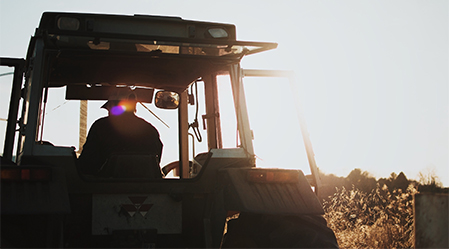Other successful Employers
The Grey family farm, “Garrawilla”
Mungindi, Queensland
Despite having no family farming background, Ralph Grey was the first to grow cotton in the Mungindi area of South West Queensland in Australia back in 1979. “Garrawilla” is now a larger farm of 2,170 hectares which primarily grows irrigated cotton along with opportunity cereal crops when there’s water available.
In the summer of 2015 Barb (pictured) and Ralph Grey became BCI cotton farmers, accessible by becoming myBMP-certified cotton growers.
Barb recalls the days of a quickly expanding industry in the 1990s when Australia’s cotton growers realised they needed to be better focused on managing the impact of cotton’s operating practices on the natural environment.
“We didn’t understand the true value or vulnerability of our resources back then and this became the catalyst for the introduction of the myBMP program. Without its rigorous guidelines we would not be the sustainable and globally respected industry we are today,” Barb says.
“myBMP marked the start of our concerted focus on the responsible use of herbicides and pesticides and we learned the over-use of chemistry was not the solution to all our problems. We welcomed a new approach, both environmentally and economically, as we embraced the introduction of integrated pest management,” Barb says.
Major practice changes and steady improvements over time have been a feature of Barb and Ralph’s approach to cotton production. Water use efficiency on the farm has trebled since 1980, the number of chemical sprays has been significantly reduced from 11 per season to one or two and 17% of the property is now a strict farming and grazing exclusion zone to protect native plants and animals.
“In 1980 for our first crop we had about 1200 megalitres of water and produced 650 bales of cotton. Now with our 5000 megs of water we are able to produce 7000 bales of cotton. In terms of natural resource management, this represents an improvement of approximately 300%,” Barb says.
“The benefits from our sustained efforts in maintaining a dedicated natural habitat are an abundance of native flora and fauna that also helps with managing pests and creating buffer zones.”
All farm staff were recently involved in reaching the certification standards of the myBMP program, which sharpened everyone’s focus on the small things that needed to improve, including the occupational health and safety of workers.
“Individuals are now far more aware of and responsible for their actions and this has made the job of managing farm safety far easier. For example, first aid kits and personal protective equipment are no longer assigned to pieces of farm equipment, but to individuals, who are responsible for policing adherence to use and maintenance,” Barb says.
Another practical outcome of the myBMP process was the ‘make-over’ of waste oil handling. Previously staff tried to manage the messy process of collecting waste oil for recycling collection, using multiple 20 litre containers, leading to untidy spills in the workshop and a clutter of drums.
“Following some ingenious thinking we constructed a dedicated oil handling facility made from a recycled fuel container that holds 2200 litres of waste oil. There is now no actual handling of the waste, as it’s transferred by a purpose-made, mobile air-evacuated oil collector. We thankfully have a much cleaner, safer practice,” Barb said.
“The myBMP program and our participation in BCI has given us confidence in our farming practices. We have a comprehensive suite of guidelines covering all aspects of production and without it we could not meet the increasing demands for accountability we’re seeing from the textile supply chain.”
“Our staff are proud to have achieved the myBMP industry benchmark and the status of BCI, and it is their hard work that has allowed us to be recognised in this way. This has been a whole-of-industry team effort. Everyone in our supply chain who has a vested interest in cotton production has played a vital part in helping us to achieve best practice.”
“It’s clear that brands and retailers now demand accountability and traceability in their cotton products, and part of this is delivered by the BCI. These businesses seek to be far more informed around the ‘how’ in the production of Australia’s cotton, and want to be reassured of the care and consideration given to the environment and our community.”





